Nov 18, 2023
Sneha Lundia
Sneha Lundia is the founder of Step2Growth, a growth accelerator for early-stage startups, focused on helping them achieve product-market fit and develop effective marketing strategies. With a background in marketing, Sneha has supported over 500 startups, primarily those with fewer than 10 employees, through mentorship, services, and coaching. She is passionate about supporting small businesses and improving startup success rates. Sneha is also exploring the use of AI in marketing and productivity.
One Line Life Lessons from Sneha
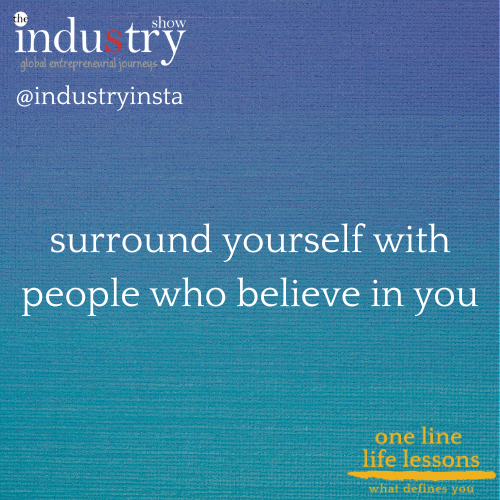
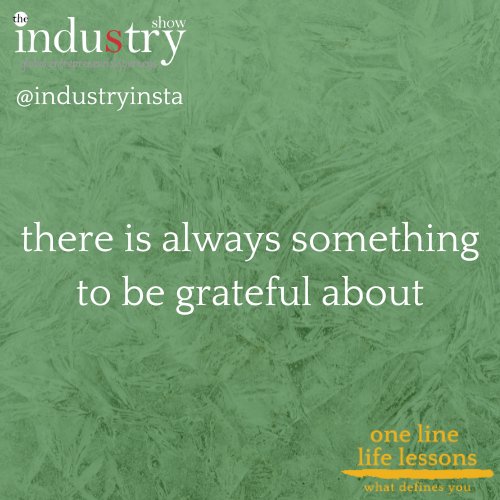
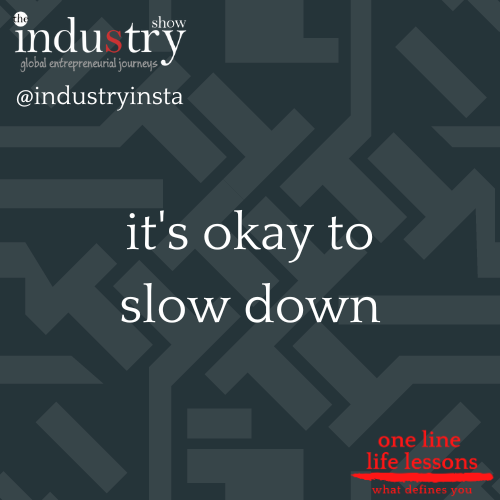
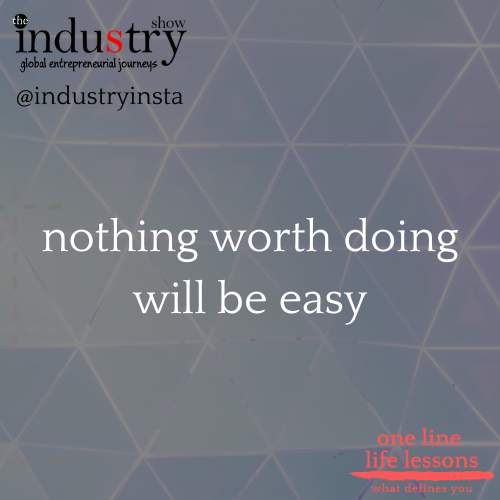
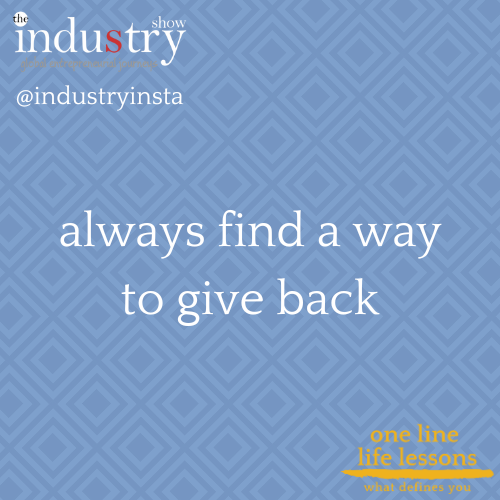
Episode Highlights
- 0:02 – Introduction: Nitin Bajaj: welcomes viewers to The Industry Show.
- 0:10 – Introduction of Sneha Lundia:: Nitin introduces Sneha Lundia:, founder of Step2Growth.
- 1:16 – Mission and Vision: Sneha explains Step2Growth’s mission to help early-stage startups succeed.
- 3:35 – Scale of Operations: Sneha shares Step2Growth has supported over 500 startups.
- 5:13 – Challenges: Sneha discusses the challenge of marketing being neglected by startups.
- 8:43 – Exciting Opportunities: Sneha expresses excitement about using AI in marketing.
- 10:54 – Lessons Learned: Sneha shares a lesson on setting boundaries and an achievement of being honored as a woman of influence.
- 14:43 – One-Line Life Lessons: Sneha shares life lessons on support, gratitude, slowing down, embracing challenges, and giving back.18:15 – Conclusion: Nitin thanks Sneha and expresses excitement about Step2Growth’s future with AI in marketing.
Show Transcript
Transcript - Full Episode
Nitin Bajaj:
(0:02) Hey everyone, welcome to The Industry Show. (0:05) I’m your host Nitin Bajaj: and joining me today is Sneha Lundia:. (0:10) Sneha, welcome on the show.
Sneha Lundia:
(0:12) Thanks a lot Nitin, it’s a pleasure to be here.
Nitin Bajaj:
(0:16) Pleasure is all mine. (0:17) So let’s get started with who is Sneha.
Sneha Lundia:
(0:22) So I have a new mom.
Nitin Bajaj:
(0:25) Congratulations.
Sneha Lundia:
(0:25) Very recent mom. (0:28) Thank you and I’m loving that. (0:32) And that’s, yeah, I’m loving that. (0:35) Other than that, I’m a super passionate, optimistic person. (0:40) I run my own company called Step2Growth. (0:42) I love helping people. (0:44) I love helping and supporting small businesses and startups. (0:48) And that’s what Step2Growth also does. (0:51) And whenever I have some time outside of now my baby, I love to travel and go on hikes.
Nitin Bajaj:
(0:58) That is awesome. (1:00) And obviously, we’ll talk about Step2Growth here. (1:04) And, you know, tell us more about the mission, the vision, and more importantly, why do what you do?
Sneha Lundia:
(1:16) So Step2Growth is a growth accelerator for early stage startups and small businesses with a mission to help them go from zero to one. (1:25) So today, nine out of 10 startups fail, and more than 50% of them fail because of either lack of a product market fit or poor marketing strategy. (1:40) And I really want to change that, that even if I can make that eight out of 10, like that would be a big deal for 4.4 million companies start every year just in the US. (1:53) So like, if I’m able to change that number, that’s the vision I see like that’s my mission of helping and supporting early stage startups. (2:03) And yeah, and that’s what Step2Growth has been doing for over five years now.
Nitin Bajaj:
(2:07) That’s amazing. (2:08) And you know, just just a sheer size of impact, four and a half million companies each year. (2:16) And as you said, less than 10%, in fact, less than 5% of them survive over a five year term. (2:23) So yeah, if we can make a small, a very small dent, that would be a huge, huge impact on not just the community, but the whole economy. (2:34) Because especially in the US, as you know, the majority of the workforce, majority of the jobs come from the smaller businesses and the startups. (2:45) So very worthwhile. (2:48) And you know, I’m glad I asked that question, because I don’t think people realize the sheer size and scale at which small businesses make an impact on our economy. (3:00) So thanks for doing what you do. (3:03) I’m sure it comes with its own pros and cons or challenges and opportunities. (3:09) And we’ll talk about that here. (3:12) But give us a sense for the impact. (3:15) You know, you’ve been doing this for just over five years now. (3:18) Tell us a little more about the size and scale of your operations, the businesses that you help, their typical sizes, more importantly, the impact of what you’ve been able to accomplish in this time.
Sneha Lundia:
(3:35) So we’ve been running as an operating in a very lean manner, but we’ve had big impacts. (3:43) I have supported over 500 startups in some form or the other, either through mentorship, or through services or through coaching. (3:52) We’ve had both kinds of companies, we’ve had acquisitions, but we’ve had a few which have closed down as well. (3:59) So that’s where the biggest learning is like in terms of what happened and what could have changed. (4:07) I personally like to work with companies which are less than 10 employees, like that’s a good stage to start supporting them and helping them figure out. (4:18) By now, I’m sure you know that my expertise is in marketing. (4:22) So figuring helping them figure out go to market and how to figure out your product market fit. (4:29) So every year, I love to give presentations and I do that a lot. (4:35) So I’ve been invited many times in different communities to host workshops and things like that. (4:42) I do feel that these numbers which I share are still like very small in terms of where I really want to go because I really want to change from 90% to 80% of startups not failing. (4:59) So with that in mind, there are multiple things which I try to keep doing to just increase that impact and number. (5:07) So I feel I’ve done a bit but I’m not yet satisfied with it.
Nitin Bajaj:
(5:13) And keep that energy coming because these numbers are not getting any smaller. (5:18) And the impact that you will bring to them is especially at those early stages, just like when we as a new mother, you will appreciate this with children, the earlier we can set certain foundational aspects, it helps them the life term. (5:36) And that return on investment is so much more. (5:41) And of course, for us selfishly, as parents or advisors to these companies, we have a selfish joy in that in their success. (5:50) So, well, let’s talk about challenges. (5:54) What’s the one big challenge that you face as an entrepreneur, as you’re helping these companies take their steps to their growth?
Sneha Lundia:
(6:05) So I think the biggest challenge for me always has been marketing tends to fall on the back burner for most of these companies at the scale I am working at, right, less than 10 employees. (6:22) And nobody thinks of marketing as a long term investment, they will always want immediate results, I have thrown out a post and something should happen. (6:32) And so I feel that there is that lack of education in terms of entrepreneurs, so that they understand how marketing works. (6:40) And I feel my first few sessions are more about education. (6:45) And that kind of is very challenging, because they are expecting results, whereas you won’t get results until you do all the foundational work. (6:55) And another big thing, which I’ve kind of seen is that people tend to feel that marketing is different from sales, and they have to work separately. (7:05) But it might happen, or it used to happen maybe like 30-40 years ago, but not anymore. (7:12) Everything needs to work together with the same goal. (7:16) So like I feel from an industry point of view, and my audience point of view, these are the two big challenges I still face, and I really need to educate them before going forward.
Nitin Bajaj:
(7:28) And I think it’s also extremely important that not only you measure what is being done, but you understand what you’re measuring. (7:35) And that’s where the education, the foundation of alignment that this is why we are doing the things that we are doing. (7:43) And yes, in a lot of these things, creating that brand, setting that brand, getting that awareness out before you can expect to see results is extremely important. (7:53) If you don’t understand it, people will fall off. (7:57) And I think, again, you’re doing a great job of meeting these customers, identifying your ideal customer persona, where you can really drive value through education. (8:08) And then, of course, by handholding them to get them to where they need to be. (8:14) So yeah, the challenges are real. (8:17) And I think you have the right experience and have done this for a long time. (8:24) And of course, more importantly, you have the passion for this, where you take on these challenges head on. (8:29) So again, thanks for doing what you do. (8:33) Now on the flip side of challenges come opportunities. (8:36) What’s the one most exciting opportunity that is ahead of you?
Sneha Lundia:
(8:43) AI with marketing, like I am experimenting with it extremely crazily. (8:51) And like I’ve seen, I’ve heard a lot, I’ve been asked many times, or do you think AI is going to replace you? (8:58) And like, that’s not how it works. (9:01) I have been using it in my day to day work life, and my personal life, like even planning trips and all it’s, it’s very different now. (9:11) So I’m really excited about what it can do. (9:14) And not just for like, startups, but also figuring out how to be more productive. (9:22) And trying to basically figure out where you, you can do things better, but also getting help from technology. (9:31) And that’s, that’s the main role of technology. (9:33) So AI is never going to come and become a content writer. (9:37) Everyone now knows that this post is written by chat GPT and not by a human. (9:42) So eventually people will figure it out. (9:45) It’s about using it to support you in your journey versus like, just using it to do everything for you. (9:52) So I’m really excited about that.
Nitin Bajaj:
(9:55) And I agree 100% with you, right? (9:57) It’s how do we understand the technology? (9:59) How do we use it and steer it to help make our life easier, better, and drive more value. (10:08) And it’s not about getting scared. (10:09) Of course, you know, the bell curve of adoption exists in all kinds of technology. (10:16) And but yeah, I’m, I’m super excited as well. (10:19) And I’m really looking forward to seeing what you come up with here in the next few weeks and in a few months. (10:27) So that’s awesome. (10:29) Now, as we look forward, I want to take a moment to look back in the rear view mirror. (10:34) And I’d love for you to share two instances. (10:38) One that did not work out as you had expected, became a failure and a lesson. (10:44) On the other side, something that blew your own expectations and became a success beyond your imagination. (10:51) So please.
Sneha Lundia:
(10:54) So I don’t like to use the term failure. (10:57) I call them experiences. (11:00) So I think one of one of the experiences I’ve had and realized is that as an entrepreneur, you want to make everyone your customer, like you will go out and try and do everything to make them happy. (11:15) But then I realized that not at the cost of yourself or your mental health. (11:21) So I am not good at firing. (11:25) Like, I asked my husband to do that for me for our employees, let alone firing a client like that was a big deal for me. (11:35) It was just not working out. (11:37) And that experience that I couldn’t ask my husband to do right. (11:42) So I learned how to stand by my ground and express myself in a way which was polite and which the customer would understand and move on from there. (11:56) So I think that journey from from an experience point of view or for step to growth, it was a big customer from a paycheck point of view and revenue point of view, but there was no alignment with our values and our way of working together. (12:12) So from a personal and from a founder’s point of view, it was the right decision to take. (12:18) And I learned a lot in the process in terms of how to communicate. (12:22) And also that it’s okay to let go of a little business if there is no alignment. (12:28) So I think that experience has taught me a lot. (12:32) And it has given me more confidence. (12:36) And in terms of achievements, I think I was honored the women of influence by Silicon Valley Business Journal. (12:48) And that was surprising and very humbling. (12:53) I, I didn’t know that what I was doing had that kind of an impact to be around other women who like who I feel have accomplished much, much more than what I have done. (13:07) So just being there around them. (13:10) And on that same stage, I feel that that that was a super proud moment for me.
Nitin Bajaj:
(13:18) Well, congratulations on that. (13:20) And I think, you know, the, the work you do at the size at the scale at the phase of the company is extremely important. (13:32) And I’m not surprised that people are taking track of that and noticing the effort that’s going in and the results that are coming out on the other side. (13:42) And the goal you have to move that 90% to 80%. (13:46) That’s a big one. (13:48) And, you know, all the support, all the acknowledgement, and the accolades to go with it. (13:55) So congrats on on that success. (13:58) And yeah, I agree with you that, you know, these failures, and I use the term failure, because it’s almost a taboo, and people don’t want to use it. (14:07) But the reason we we use it is because they’re not failures, in essence, they’re really learning opportunities. (14:15) And as long as we learn, as long as we get back up, and keep moving in the direction we are headed. (14:21) It’s all great. (14:23) So thanks for sharing those. (14:25) And, you know, this also brings us to my favorite part of the show, which we call the one line life lessons. (14:34) I’d love for you to share your one line life lessons with us. (14:38) So please take it from here.
Sneha Lundia:
(14:43) Okay, so I think one of the biggest things for me has been always surround yourself with people who believe in you. (14:53) Like I have my constants around me all the time, who are my cheerleaders. (14:58) But they should not be the people who just say good things. (15:03) For people who believe in you, they let you know that you can do this in a different way, or you have a better potential, or if you’re down, like, get things together and you know, do things right versus like just just being there. (15:21) So I love and feel that every every entrepreneur needs that set of people to support them. (15:32) Another thing which I truly believe in is that there is always, always something to be grateful about, like, I’m a big believer in being grateful even about even for the water we drink. (15:46) So like, if you find things, there is always something for and then sometimes it’s okay to slow down. (15:57) And I’ve realized this very recently, before being pregnant, I was like a crazy hustler who would like work for 12 hours and then not care about food. (16:09) Like I was crazy until I figured that I cannot be like this. (16:15) And my biggest worry was that what if I slow down what happened at the company and things like that, like that was my fear. (16:22) And then I realized that it’s okay. (16:26) It’s just take a break, go down and people understand things happen. (16:33) And so I’ve kind of started living by that mantra now. (16:37) And it is helping. (16:40) Then I really love this one, that nothing worth doing will be easy. (16:47) And sometimes, as an entrepreneur, there are some things you like, but then there are some which you just don’t, but you have to do it. (16:57) So, you know, people say that it’s hard, it’s hard, but like, if it’s hard, then it’s going to be worth it. (17:04) So that’s where it comes from that nothing worthwhile will be easy. (17:10) And I truly believe in this, that you should always find a way to give back, maybe multiple ways. (17:20) But I always do that, even step to growth, I have a growth for good initiative, where I love supporting nonprofits and women entrepreneurs. (17:31) So I really live by that as well.
Nitin Bajaj:
(17:35) Thank you for sharing those. (17:37) And also thank you for helping nonprofits, such as ours to appreciate all the help. (17:45) And most importantly, thank you for making the time to step away from from your baby, and to come here and share your journey and story with us. (17:55) We really appreciate it. (17:56) And again, we are super excited to see what you have in the works with AI in marketing. (18:05) So we’d love to bring you back on here and share more of that journey. (18:12) Thanks again, really appreciate it.
Sneha Lundia:
(18:15) Thanks a lot. (18:16) It was really nice. (18:18) And yes, I’d love to, I’m excited about the launch. (18:21) So stay tuned.
Nitin Bajaj: (18:22) Yes, looking forward to it. (18:24) Thanks a lot.



